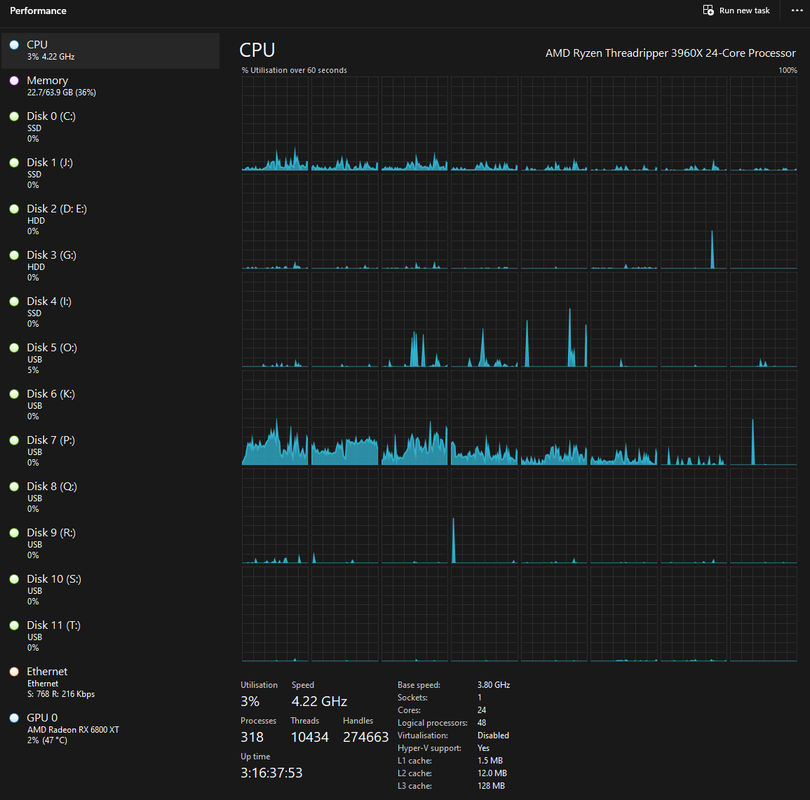Associate
- Joined
- 14 Jun 2023
- Posts
- 7
- Location
- London
I understand it is a relatively common question, and I have seen lots of benchmarks and tests etc on this, but I still struggle to understand:
when do you benefit from more than 6 cores? When does it make sense to have 8 or 12 cores, instead of 6?
For example, thinking of the AMD Ryzen 5 7600 (6 cores) vs the 7 7700 (8) vs the 9 7900 (12), in what real-life scenarios is there a real benefit in having more than 6 cores?
There are loads of benchmarks, eg https://www.tomshardware.com/news/amd-ryzen-5-7600-cpu-review , but it's never clear to me how much those benchmark numbers translate into tangible real-world differences
Aside from certain tasks which lend themselves very well to parallelisation, like encoding hundreds of video files, does having more core make sense only if you are constantly carrying out multiple tasks at the same time, eg you have 10 programs open at the same time and all running doing something?
To what extent is getting 12 cores about future-proofing your system, as in, there isn't a lot of software right now which makes the most of 12 cores, but there may be in the near future, so a 12-core system is more future proof than an 8-core one?
I imagine that, in many scenarios, the money you save buying fewer cores would be better spent buying more/faster ram, a faster SSD, etc, but, just in theory, if you already have the best other parts, when would you really benefit from more than 6 cores?
Thanks!
when do you benefit from more than 6 cores? When does it make sense to have 8 or 12 cores, instead of 6?
For example, thinking of the AMD Ryzen 5 7600 (6 cores) vs the 7 7700 (8) vs the 9 7900 (12), in what real-life scenarios is there a real benefit in having more than 6 cores?
There are loads of benchmarks, eg https://www.tomshardware.com/news/amd-ryzen-5-7600-cpu-review , but it's never clear to me how much those benchmark numbers translate into tangible real-world differences
Aside from certain tasks which lend themselves very well to parallelisation, like encoding hundreds of video files, does having more core make sense only if you are constantly carrying out multiple tasks at the same time, eg you have 10 programs open at the same time and all running doing something?
To what extent is getting 12 cores about future-proofing your system, as in, there isn't a lot of software right now which makes the most of 12 cores, but there may be in the near future, so a 12-core system is more future proof than an 8-core one?
I imagine that, in many scenarios, the money you save buying fewer cores would be better spent buying more/faster ram, a faster SSD, etc, but, just in theory, if you already have the best other parts, when would you really benefit from more than 6 cores?
Thanks!



